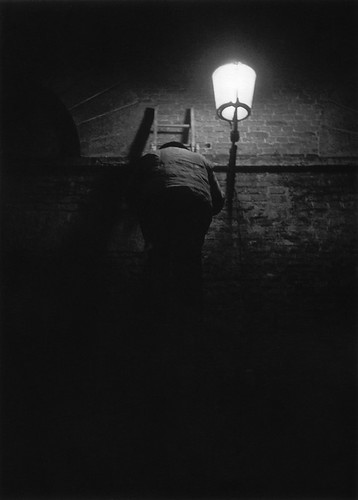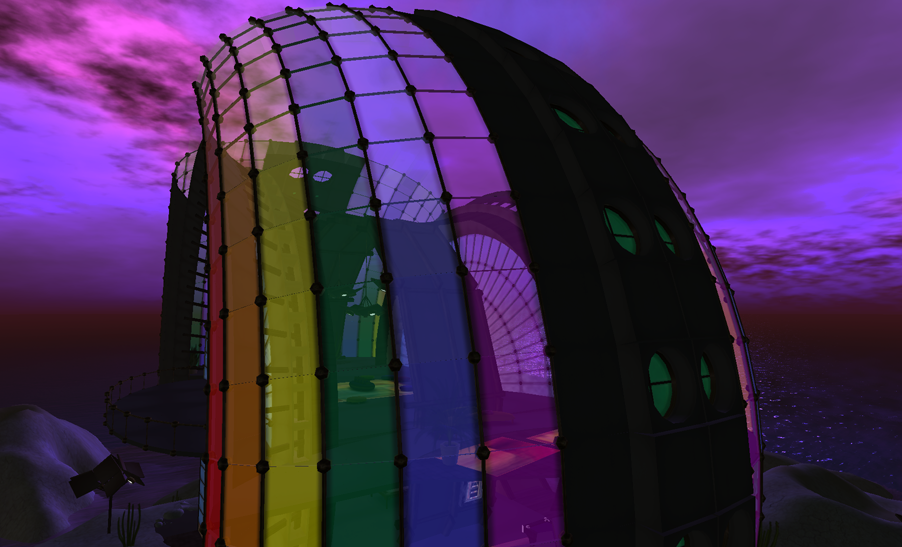
Who Fears Death by Nnedi Okorafor
My rating: 5 of 5 stars
I mentioned a little while ago that I was making a conscious effort to read work from a more diverse sampling of authors. Particularly I noted that my personal literary canon over the past couple of years has been rather lily white. The thing about that kind of sampling is that the cultural underpinnings that inform North American/European white authors gets reflected in their settings and characters as a default. For example, most fantasy novels authored by white writers are set in some riff on medieval Europe, presumably because that’s where the fairy tales and other genre standards originated, but also I think because that period gets a lot of attention in white-majority primary schools.
So when you read a novel like Nnedi Okorafor‘s Who Fears Death, the cultural sameness of a lot of white-authored books becomes very plain. This is a book set in a sort of post-apocalyptic, magical realism Africa. Even though it’s probably not all that divergent from modern Africa (in the sense, for example, that The Road is not that divergent from modern America), just that fact alone makes it feel like this very remote, fascinating place to someone, like me, with limited literary horizons. Ms Okorafor crafts this world with a tender but unflinching hand. The world building is deft, typifying the novel as a whole being, by turns, lush and raw and gorgeous and devastating and ugly and remarkable.
This is not an easy book. There are no light, fluffy sections, no gentle fades to black when the ghastly truths of the setting come about. It follows the tale of Onyesonwu, a child born from the rape of her mother. Her mother’s attackers are Nuru; she is Okeke; the results of such violent couplings are distinctive, lighter of skin, freckled, and many superstitions surround those like her. But Onyesonwu is a survivor. She has strange abilities and she longs to find a sense of purpose for those talents such as shapeshifting and healing powers, as much as she longs to find a place in the world that does not accept her.
The fact that Onyesonwu is an outcast both from her parentage and her abilities, the violent assault on her mother, the local coming-of-age custom that involves female circumcision, the oppressive brutality of the setting and the antagonist, even the darkness inside Onyesonwu herself, these things make for grim reading. But what really worked about Who Fears Death is that Ms Okorafor never quite lets it feel bleak. Onyesonwu is fiery, sharp, stubborn. She is rarely self-pitying or whiny, despite having to deal with a great deal of angst. The supporting cast are wonderful foils for the protagonist, the pacing of the action is perfectly pitched to give Onyesonwu and the Okeke the right amount of triumphs amid the setbacks and tragedies to make the ending a genuine question. In most fantasy or hero’s quest tales the victoriousness of the ending is basically pre-ordained. But because the world in Who Fears Death is so grim and unsentimental, there is a genuine tension regarding the outcome.
There are so many little details about this book that made it gripping for me to read. The relationships, the fascinating blend of science fiction and fantasy, the characterizations, the breadth of the plot without having to resort to being “epic” (in the pejorative sense), the raw humanity on display at all times; it was all just so tightly woven. The book exhausted me somewhat, emotionally. I don’t know that I finished it thinking, “I’d love a sequel to this.” But I did finish it wanting to know more about the world Ms Okorafor had created, even if it meant having to make the harrowing trip back.
View all my reviews



 During the day, James A. Miller works as an Electrical Engineer in Madison WI. At night, he spends time with his family and does his best to come up with fun and creative fiction. He is a first reader for Allegory e-zine and member of the Codex writer’s group. He also has two cats but will resist the urge to say anything cute or witty about them here. He blogs at
During the day, James A. Miller works as an Electrical Engineer in Madison WI. At night, he spends time with his family and does his best to come up with fun and creative fiction. He is a first reader for Allegory e-zine and member of the Codex writer’s group. He also has two cats but will resist the urge to say anything cute or witty about them here. He blogs at 


 Alison McBain lives in Connecticut with her husband and three daughters. She has over thirty publications, including stories and poems in Flash Fiction Online, Abyss & Apex, and the anthology Frozen Fairy Tales. You can read her blog at
Alison McBain lives in Connecticut with her husband and three daughters. She has over thirty publications, including stories and poems in Flash Fiction Online, Abyss & Apex, and the anthology Frozen Fairy Tales. You can read her blog at 



